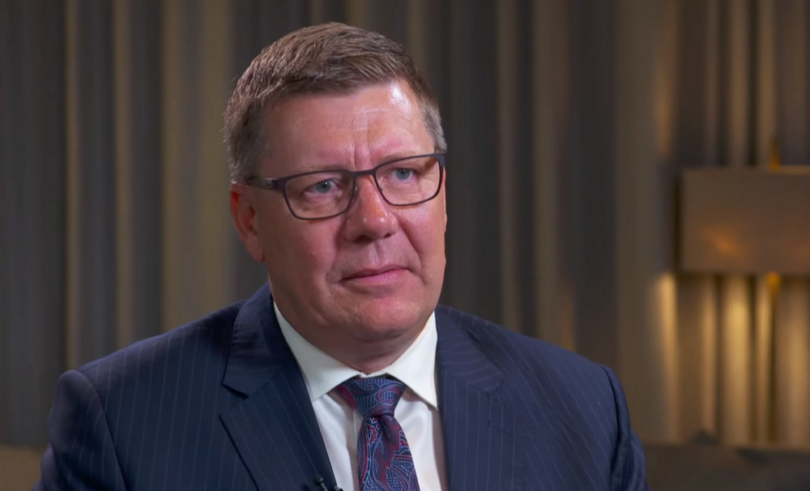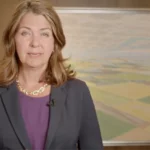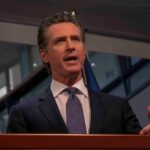Canadian Politics, Gender Ideology, Pride
LGBT activists ramp up their war on Canadian parents
This time, it appears that the Canadian parental rights movement may be more than a flash in the pan. There have been sporadic protests over aspects of public school sex education for years across the country – with more sustained protests organized by groups such as Campaign Life Coalition in Ontario during the 2010s – but this level of organization, interfaith cooperation, and political backing has been lacking. If momentum continues to build, there will be a collision course between a growing movement and consolidated opposition from progressive politicians, the press, the powerful LGBT lobby, and teachers’ unions (which have more or less merged in recent years).
The key example, which I’ve covered here extensively, is that the premiers of several provinces have backed a minimal form of parental rights, led by New Brunswick’s Premier Blaine Higgs and now Saskatchewan Premier Scott Moe, who used the “notwithstanding clause” this week to override judicial opposition to parental rights. Despite an aggressive press campaign against parental rights (the Toronto Star insists on putting the phrase in quotation marks to highlight their contempt for the very concept) polling consistently shows that a supermajority of Canadians support parental rights and a majority support Moe’s use of the notwithstanding clause.
Facing the fact that they have clearly lost in the court of public opinion and stymied by the fact that conservative politicians are, for once, displaying a spine, opponents of parental rights are exploring other tactics. One of them is the “weaponized resignation.” From the CBC:
Heather Kuttai said she couldn’t fall asleep Sunday night without jotting down her thoughts about the Saskatchewan government’s new school pronoun policy. A few hours later, those thoughts turned into a resignation letter. Kuttai – a former paralympian, author and award-winning disability advocate – began working as a human rights commissioner in the province in 2014. On Monday afternoon, that appointment came to an end.
‘I can no longer continue. I strongly disagree with the proposed legislation that requires teachers to seek parental permission to change a child’s name and/or pronouns when they are at school. This is an attack on the rights of trans, non-binary, and gender-diverse children,’ Kuttai wrote in her emailed resignation letter addressed to the premier.
‘I cannot tell you the depth of my disappointment in the government I have worked for and supported for the last nine years.’ Speaking to CBC News hours after stepping down, Kuttai said the move came after several long conversations with her teenage son – someone who’s transgender [sic] and had a supportive teacher to lean on while he was in school. ‘I felt like there were no other avenues for me to go and that I had said what I needed to say, but it wasn’t enough. Maybe my resignation will be louder.’
I don’t think this will work. Many of the op-eds condemning the parental rights protestors have come from parents who tout their own transgender-identified children, and their activism is clearly an attempt to defend their own decision-making while condemning parents who take a more cautious approach or disagree with them entirely. In short, they oppose parents having the right to make different decisions than they have made (and, as I noted in a recent essay for The European Conservative, those parents who put their children on the path to “transition” will likely be the last defenders of gender ideology because to admit they’ve made a mistake will simply be too hard to bear).
Headlines on parental rights in Canada have been almost entirely dedicated to claiming that there is a fundamental conflict between parents and their children. Indeed, this is the underlying assumption of the opposition: that children are safer with LGBT activists than with their parents, especially if they are struggling. Much to the surprise of said activists, most Canadians simply don’t buy this – and a healthy majority find it offensive and support policies that directly contradict this. What does all of this boil down to? Alex J. Proudfoot of the Alberta School Trustees Association once articulated this view with admirable candor. In a debate surrounding the right of Christian schools to operate in the province, he stated: “When we get right down to the crunch, the child belongs to the state.”
Years later, while serving as a professor of education at the University of Calgary, he put it even more bluntly: “The child is not your child. [Children] are the property of the state, like our oil, like our gas, like our pipelines.” Canadian parents disagree. This fight is far from over.








